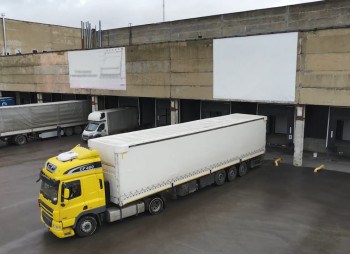Max Polyakov’s tumultuous run as the owner of Firefly Aerospace appears to have come to an end.
The private equity firm AE Industrial Partners revealed a deal to “to acquire a significant stake in Firefly” from Polyakov’s technology investment arm, Noosphere Venture Partners. Financial terms of the deal were not disclosed in a statement announcing the transaction. Polyakov, however, had been under pressure from the U.S. government to divest his entire stake in Firefly, which is based in Central Texas and makes rockets that carry satellites into space.
Polyakov’s departure comes less than 24 hours after Russian forces invaded and attacked targets across Ukraine, where Polyakov was born. The government in Kyiv has declared martial law and and concerns are running high that the capital may fall in a matter of hours.
In mid-February, Polyakov published a post on social media, saying that he would sell his 58 percent stake in Firefly for $1. The vitriolic post appeared to come in reaction to earlier demands from the Committee on Foreign Investment, or CFIUS, which had sent a letter to Polyakov last November instructing him to give up his stake in Firefly because of national security concerns. “I hope you are happy now,” Polyakov wrote. “History will judge all of you guys.”
Polyakov made his fortune through business software and a variety of internet services. He put more than $200 million into Firefly, after rescuing the company from bankruptcy several years ago. Polyakov had hoped to merge Ukrainian and American aerospace expertise to create a company capable of building rockets, satellites and moon landers. Ukraine has historically been a major aerospace power. Its factories produced many of the missiles and rockets for the Soviet Union, and the aerospace work has continued in recent decades. Part of Polyakov's interest in Firefly, he said, was to keep this technology out of the hands of Russia and to funnel the engineering expertise to the U.S.
In September of last year, Firefly conducted its first launch. Its rocket, called Alpha, did not reach orbit but performed well for a first attempt with a new spacecraft. Not long after the launch, various U.S. government agencies began raising national security concerns about Polyakov and hindered Firefly’s attempts to launch a second rocket from Vandenberg Space Force Base in Southern California. CFIUS has declined to specify its concerns about Polyakov, and Polyakov has declined to release the communications he’s had with the government.
In its most recent funding round, Firefly raised $75 million and was valued at $1.1 billion. On paper, Polyakov’s stake would be worth more than $500 million, although the issues with CFIUS complicated his ability to sell shares in the company and may have hurt his leverage. Neither AE Industrial Partners, Polyakov nor Firefly would provide more details on the financial arrangement of the deal.
The parties noted, however, that the deal still had to clear regulatory approvals, including Hart-Scott-Rodino, which is triggered when a sale is at least $101 million in size.






